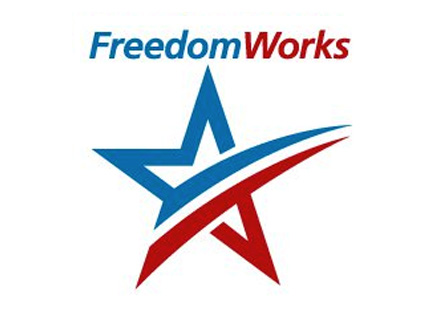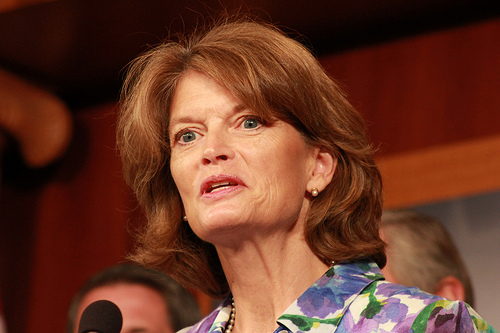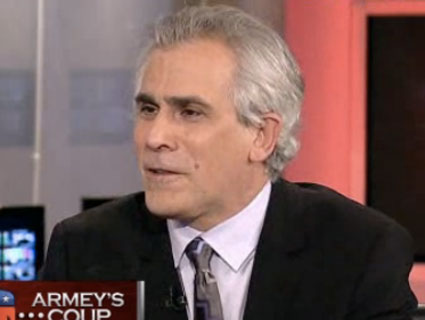
FreedomWorks
This story has been updated. Click here for the latest.
FreedomWorks, the national conservative group that helped launch the tea party movement, sells itself as a genuine grassroots operation, and for years it has battled accusations of “astroturfing”—posing as a populist organization while doing the bidding of big-money donors. Yet internal documents obtained by Mother Jones show that FreedomWorks has indeed become dependent on wealthy individual donors to finance its growing operation.
Last month, the Washington Post reported that Richard Stephenson, a reclusive millionaire banker and FreedomWorks board member, and members of his family funneled $12 million in October through two newly created Tennessee corporations to FreedomWorks’ super-PAC, which used these funds to support tea party candidates in November’s elections. The revelation that a corporate bigwig like Stephenson, who founded the Cancer Treatment Centers of America and chairs its board, was responsible for more than half of the FreedomWorks super-PAC’s haul in 2012 undercuts the group’s grassroots image and hands ammunition to critics who say FreedomWorks does the bidding of rich conservative donors.
Big donations like Stephenson’s are business as usual for FreedomWorks. According to a 52-page report prepared by FreedomWorks’ top brass for a board of directors meeting held in mid-December at the Virginia office of Sands Capital Management, an investment firm run by FreedomWorks board member Frank Sands, the entire FreedomWorks organization—its 501(c)(3) and (c)(4) nonprofit arms and its super-PAC—raised nearly $41 million through mid-December. Of that total, $33 million—or 81 percent of its 2012 fundraising—came in the form of “major gifts,” the type of big donations coveted by nonprofits and super-PACs. (FreedomWorks’ nonprofit components do not have to disclose their funders.)
Well-heeled individual contributors ponied up $31 million—or 94 percent—of those major gifts, according to the FreedomWorks board book. Eight donors gave a half-million dollars or more; 22 donated between $100,000 and $499,999; 17 cut checks between $50,000 and $99,999; and 95 gave between $10,000 and $49,999. Foundations contributed $1.6 million in major gifts, and corporations donated $330,000. Corporations once accounted for more of FreedomWorks’ hefty donations. In a memo included in the report, David Kirby, FreedomWork’s vice president for development, and senior adviser Terry Kibbe wrote, “This year continued our trend of relying less and less on corporate support.” At the same time FreedomWorks expanded its small donor ranks from 41,794 in 2011 to 81,081 in 2012. More than 30,000 of those small donors gave between a dollar and $99 this year.
According to ex-FreedomWorks chairman Dick Armey, when he joined the organization in 2003, FreedomWorks relied heavily on corporate donations. The group, he says, subsequently weaned itself off such underwriting and used direct-mail lists—some provided by Armey—to build up a base of small donors. But in the last year, there was a “big surge in private individual contributions,” most of which Armey says he didn’t know about. “The details were kept secret from me,” he remarks.
FreedomWorks, flush with wealthy donors’ money, took full advantage of the nation’s lax campaign finance rules during the 2012 election cycle. The group’s nonprofit side shifted millions of dollars in dark money to the FreedomWorks super-PAC, effectively hiding the true source of those funds. One campaign finance reform advocate blasted those internal money transfers as the “laundering of secret money.” A FreedomWorks spokeswoman did not respond to requests for comment.
The December board report was prepared in the wake of a bitter internal battle between Armey and FreedomWorks president and CEO Matt Kibbe. As Mother Jones first reported, Armey resigned in November after feuding with Kibbe over the direction of FreedomWorks. Armey accused Kibbe of using FreedomWorks resources to write a book in a deal that awarded Kibbe the sales profits. Two board members allied with Armey in December launched a legal investigation into alleged wrongdoing at FreedomWorks. Kibbe, meanwhile, drafted a memo charging that Armey tried to steer the group away from its tea party roots and toward a more mainstream GOP position. Four FreedomWorks staffers, including vice president for public policy and government affairs Max Pappas, resigned after news broke of Armey’s resignation.
In 2012, according to the board book, FreedomWorks hosted 110 current and potential “investors” at a Jackson Hole, Wyoming, hotel for its second annual “Restore Liberty” donor retreat. The event resulted in a source pledging a $10 million matching grant; the board book does not name this source. In August 2013, FreedomWorks plans to fete donors at the four-star St. Regis resort in Aspen, Colorado. (FreedomWorks also treats its board well, holding its August 2012 meeting at the Snake River Lodge and Spa in Teton Village, Wyoming, according to minutes taken at the meeting.)
In 2013, FreedomWorks plans to spend between $25 million and $30 million, according to the board book. Favored causes and projects include the annual Blog-Con convention, the right’s answer to Netroots Nation; fly-ins for activists to lobby members of Congress; briefings with lawmakers and their aides; and the recently launched FreedomWorks University. FreedomWorks also plans to continue its financial support for Glenn Beck’s media enterprise, including sharing a TV studio with and leasing office space to the Washington bureau of TheBlaze, Beck’s website and TV network.
The board book is chock full of strategy talk by the FreedomWorks’ brass. In a memo to the board included in the report, CEO Kibbe panned GOP presidential nominee Mitt Romney as just another “old white guy.” He acknowledged that his group’s plan to help flip control of the US Senate to the GOP failed miserably (“We take our lumps with humility”), and he insisted that it’s time to replace the aging image of the conservative movement with “younger, more diverse, more substantive voices for freedom in America.” Kibbe asked: “Can liberty, personal responsibility, and doing things for yourself be the new ‘cool’?”
Such a makeover, Kibbe wrote, can begin if FreedomWorks courts so-called “Ron Paul Millennials,” the loud, loyal twentysomethings who in 2008 and 2012 followed the GOP libertarian presidential candidate from one stump speech to the next. Kibbe noted that FreedomWorks plans to reach out to blacks and Hispanics with a new “Black and Brown” tour, starring a Brazilian immigrant and tea party activist named Ana Puig. And he touted FreedomWorks’ growing online presence, with 2.1 million members on its email list and 4 million Facebook fans.
Despite his organization’s reliance on big-money donors, Kibbe stressed that the future of conservative politics is at the grassroots level. “Freedom is trending,” he wrote to the board, “thanks to your willingness to keep up the fight.”
UPDATE: In an interview with Media Matters for America’s Joe Strupp, Dick Armey shed more light on FreedomWorks’ financial arrangements with Glenn Beck’s media network and Rush Limbaugh’s radio show. Those deals were first reported by Mother Jones. Armey said FreedomWorks paid Beck upwards of $1 million to promote Freedomwork last year, calling the deal with Beck “basically paid advertising for FreedomWorks.” But Armey questioned that deal, saying it provided “too little value” to FreedomWorks. Read the entire Media Matters story here.
Click here to return to the top of the story.
Read FreedomWorks’ Winter 2012 board book:









